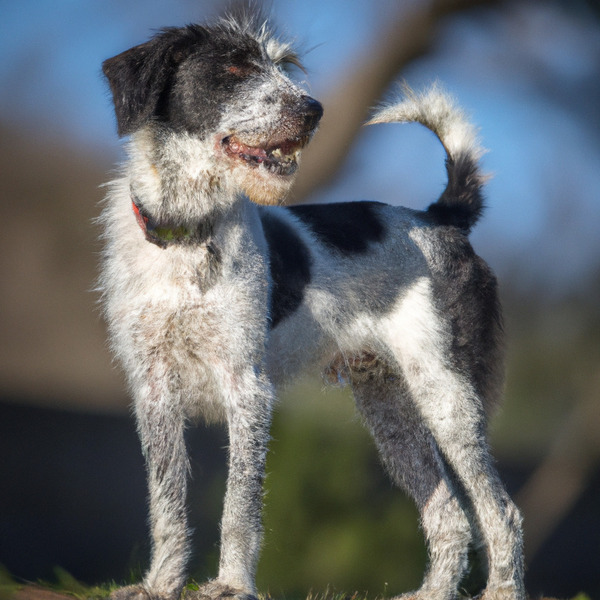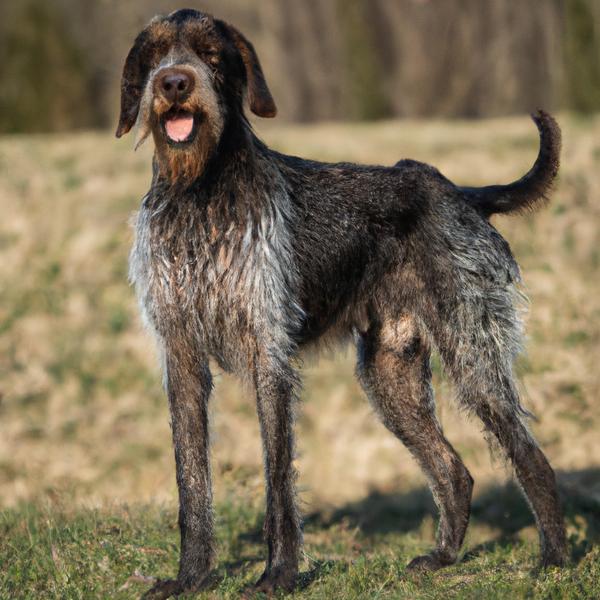Japanese Terrier vs. German Wirehaired Pointing Wolfhound: Breed Differences and Similarities
Hypoallergenic
Are Japanese Terriers or German Wirehaired Pointing Wolfhounds hypoallergenic, or neither?
Unfortunately, neither Japanese Terrier nor German Wirehaired Pointing Wolfhound are hypoallergenic, which may not make them the best choice for dog lovers who suffer from pet allergies.
Temperament
What are the personalities of Japanese Terrier and German Wirehaired Pointing Wolfhound dogs?
Active
Cheerful
Swift
Affectionate
Lively
Vigilant
Active
Dignified
Intelligent
Friendly
Responsive
Affectionate
Patient
Loyal
Tempered
Sweet
Willful
Generous
Thoughtful
Shedding Level
Do Japanese Terriers shed more than German Wirehaired Pointing Wolfhounds, or which breed sheds more, Japanese Terriers or German Wirehaired Pointing Wolfhounds?
Japanese Terrier or German Wirehaired Pointing Wolfhound dogs are not heavy shedders, but they will lose a significant amount of hair each year. To decrease the amount of shedding, you can regularly brush your Japanese Terrier or German Wirehaired Pointing Wolfhound. This will remove loose hair and keep their coat growing in the same direction.
Ancestry
What are the origins of Japanese Terrier and German Wirehaired Pointing Wolfhound breeds?
Smooth Fox Terrier, German Pinscher, Kobe Terrier
Irish Wolfhound, German Wirehaired Pointer
Date of Birth
When were Japanese Terrier and German Wirehaired Pointing Wolfhound breeds first developed?
1600s
Unknown
Eye Color Possibilites
What are the eye colors of Japanese Terrier and German Wirehaired Pointing Wolfhound dogs?
Brown
Brown
Amber
Nose Color Possibilites
What are the natural nose colors of Japanese Terrier and German Wirehaired Pointing Wolfhound?
Black
Black
Brown
Coat Color Possibilites
What are the natural colors of the coat for Japanese Terrier and German Wirehaired Pointing Wolfhound breeds?
White
Black
Pied
Brindle
Gray
Fawn
Silver
Black
Brown
Coat Length
What is the typical coat length for Japanese Terrier and German Wirehaired Pointing Wolfhound breeds?
Japanese Terriers have coats that can be either short or medium in length.
German Wirehaired Pointing Wolfhounds have medium-length coats.
Coat Density
What is the density of the coat of Japanese Terrier and German Wirehaired Pointing Wolfhound?
Coat Texture
What is the hair texture of Japanese Terrier and German Wirehaired Pointing Wolfhound?
Straight
Wiry
Litter Size
What is the usual litter size for Japanese Terrier and German Wirehaired Pointing Wolfhound?
A Japanese Terrier can have a litter of 12-15 puppies on average. However, it's worth noting that the size of the litters can vary greatly. Factors that can influence litter size include the health of the mother, breeding history, and genetics.
A German Wirehaired Pointing Wolfhound can have a litter of 6-10 puppies on average. However, it's worth noting that the size of the litters can vary greatly. Factors that can influence litter size include the health of the mother, breeding history, and genetics.
Adaptability
Japanese Terriers are known for their adaptability and can adjust well to different environments and lifestyle changes.
German Wirehaired Pointing Wolfhounds are highly adaptable and versatile, making them excellent companions for families and individuals of all lifestyles.
Health Issues
Between Japanese Terrier and German Wirehaired Pointing Wolfhound, which breed is more prone to health problems?
The Japanese Terrier and German Wirehaired Pointing Wolfhound breeds are commonly healthy with low vet costs, regular check-ups may not be as necessary but it's important to keep an eye on their health and have them checked by a veterinarian when needed.
Major Concerns
What are the major health concerns for Japanese Terrier and German Wirehaired Pointing Wolfhound breeds?
Usually A Very Healthy Breed
Hip Dysplasia
Bloat
Von Willebrand's Disease
Minor Concerns
What minor health issues should be kept in mind when owning Japanese Terrier and German Wirehaired Pointing Wolfhound?
Ear Infections
Patellar Luxation
Eye Problems
Cataracts
Occasional Tests
What occasional tests are recommended for Japanese Terrier and German Wirehaired Pointing Wolfhound breeds?
X-Rays
Eye Examination
Yearly Eye Exam
Yearly Physical Examination
X-Rays
Serum Chemistry
Blood Count
Coagulation Assay
Social Needs
Japanese Terrier vs German Wirehaired Pointing Wolfhound social needs comparison
Japanese Terrier has above average social needs and thrives with interaction with humans and other dogs.
German Wirehaired Pointing Wolfhound has average social needs and is less independent than other breeds.
Sleeping Need
Which of the two sleeps the most/least: Japanese Terrier or German Wirehaired Pointing Wolfhound?
Japanese Terriers are active and require sufficient sleep to stay healthy.
German Wirehaired Pointing Wolfhounds have moderate energy levels and typical sleep patterns of 12-14 hours per day.
Mouthiness
Mouthiness Comparison: Japanese Terrier vs German Wirehaired Pointing Wolfhound?
Roaming urge
Japanese Terrier vs Labrador: Running away tendency?
Prey Drive
Japanese Terrier or German Wirehaired Pointing Wolfhound - which breed has a higher level of prey drive?
Activity Level
Which breed has higher energy, Japanese Terriers or German Wirehaired Pointing Wolfhounds?
Japanese Terriers are high-energy dogs. They need mental as well as physical exercise. These dogs require a lot of your involvement and without it they can, and will, become problematic dogs.
German Wirehaired Pointing Wolfhounds are medium-energy dogs and typically enjoy socializing and playing casual or even sustained games of chase with other dogs. They may also have occasional periods of barking or racing around the house.
Tolerance of being left alone
Walks per Week
How many miles should Japanese Terrier or German Wirehaired Pointing Wolfhound walk each week?
There's really no limit to how far you walk your dog as long as they're comfortable. For Japanese Terrier, it's at least 8 miles / week. Just remember to build distance and stamina gradually over time.
There's really no limit to how far you walk your dog as long as they're comfortable. For German Wirehaired Pointing Wolfhound, it's at least 10 miles / week. Just remember to build distance and stamina gradually over time.
Activity per Day
Do Japanese Terriers or German Wirehaired Pointing Wolfhounds require more exercise?
In general most Japanese Terriers usually need at least 30 minutes of exercise daily. This can be spread across the day and include all sorts of high-energy activities, like walking, running and playing.
In general most German Wirehaired Pointing Wolfhounds usually need at least 60 minutes of exercise daily. This can be spread across the day and include all sorts of high-energy activities, like walking, running and playing.
Grooming
Which breed is easier to maintain in terms of grooming, Japanese Terriers or German Wirehaired Pointing Wolfhounds?
The Japanese Terrier is a low-maintenance breed that doesn't require much grooming.
The German Wirehaired Pointing Wolfhound requires an average amount of grooming compared to other breeds.
Brushing Frequency
What is the recommended brushing frequency for Japanese Terrier and German Wirehaired Pointing Wolfhound dogs?
Japanese Terrier and German Wirehaired Pointing Wolfhound should be brushed at least once a week. Of course, you can give them more frequent brushes if you find that they are still shedding a lot.
Brushing Tools
What brushing tools are used for Japanese Terriers and German Wirehaired Pointing Wolfhounds?
Slicker Brush
Nail Clipper
Pin Brush
Slicker Brush
Deshedder
Nail Clipper
Cups
How much food should be given to Japanese Terrier or German Wirehaired Pointing Wolfhound in cups?
For an average 5-9 pound (2 - 4 kg) Japanese Terrier feed 1 cups daily. But, keep in mind, the amount you feed is going to be dependent on the quality of the food you are feeding.
For an average 95-120 pound (43 - 54 kg) German Wirehaired Pointing Wolfhound feed 3 cups daily. But, keep in mind, the amount you feed is going to be dependent on the quality of the food you are feeding.
Daily Cost
Which breed has a higher daily cost, Japanese Terrier or German Wirehaired Pointing Wolfhound?
The average cost of a Japanese Terrier is somewhere $1.10 - $1.40 per day.
The average cost of a German Wirehaired Pointing Wolfhound is somewhere $2.10 - $2.70 per day.
Monthly Cost
Which breed has a higher monthly cost, Japanese Terrier or German Wirehaired Pointing Wolfhound?
The average per month expenses of a Japanese Terrier is between $28 - $42. This makes an average of $336 - $504 per year. It will be on the higher side when the dog is still small because it will need more frequent visits to the vet, shots.
The average per month expenses of a German Wirehaired Pointing Wolfhound is between $55 - $73. This makes an average of $660 - $876 per year. It will be on the higher side when the dog is still small because it will need more frequent visits to the vet, shots.
Sensitivity Level
How do Japanese Terrier and German Wirehaired Pointing Wolfhound compare in sensitivity?
This breed is sensitive to its environment and best suited for patient and understanding families with a consistent routine.
This breed is sensitive and requires gentle handling and a calm home environment.
Apartment Friendly
Which breed is more apartment-friendly: Japanese Terrier or German Wirehaired Pointing Wolfhound?
It's not recommended to keep Japanese Terrier or German Wirehaired Pointing Wolfhound in an apartment, but these breeds make good apartment dogs as long as they get to spend a good amount of time outside of the apartment. Dogs of these breeds living in apartments will need plenty of physical exercise and stimulation throughout the day to remain happy and well-behaved.
Child Friendly
Do Japanese Terriers or German Wirehaired Pointing Wolfhounds have a friendlier temperament towards children?
Japanese Terrier and German Wirehaired Pointing Wolfhound are kid-friendly dogs. They are good with children and excellent dogs with children if they are socialized and trained at a young age.
Senior-friendly
Which dog is more suitable as a pet for the elderly - Japanese Terrier or German Wirehaired Pointing Wolfhound?
Cat Friendly
Do Japanese Terrier or German Wirehaired Pointing Wolfhound breeds have a better compatibility with cats?
Japanese Terriers are average in their friendliness toward cats and tend to do well with them, especially if raised together.
German Wirehaired Pointing Wolfhounds are somewhat cat friendly and can be trained to get along with cats.
Dog Friendly
Which breed is more sociable with other dogs: Japanese Terrier or German Wirehaired Pointing Wolfhound?
Japanese Terriers are friendly and active companions, and can be good family pets, though their friendliness towards other dogs may vary.
German Wirehaired Pointing Wolfhounds are generally very friendly towards other dogs, with a happy and affectionate temperament.
Pet friendly
How do Japanese Terrier or German Wirehaired Pointing Wolfhound dogs interact with other pets?
Stranger Friendly
Which breed is more friendly with strangers: Japanese Terrier or German Wirehaired Pointing Wolfhound?
Japanese Terrier and German Wirehaired Pointing Wolfhound are friendly dogs and typically won't bark at strangers. However, if you wish to change this behavior, training them is easy thanks to their intelligence, making it pretty simple to teach them anything.
Playfulness
Which breed is more playful between Japanese Terrier and German Wirehaired Pointing Wolfhound?
Japanese Terriers are very playful, so adopting an older one might be a better option for a more relaxed experience.
German Wirehaired Pointing Wolfhounds are a playful breed that needs daily playtime to be happy.
Trainability
How do the trainability levels of Japanese Terriers and German Wirehaired Pointing Wolfhounds compare?
Japanese Terrier and German Wirehaired Pointing Wolfhound dogs are known for their ease of training and ability to learn quickly, making them a popular choice for pet owners and trainers alike.
Compare Japanese Terrier with other breeds
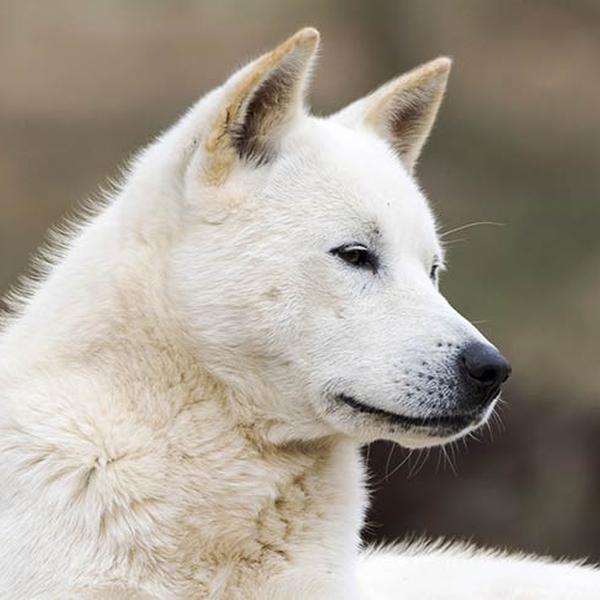
Jindo
Japanese Terrier vs Jindo
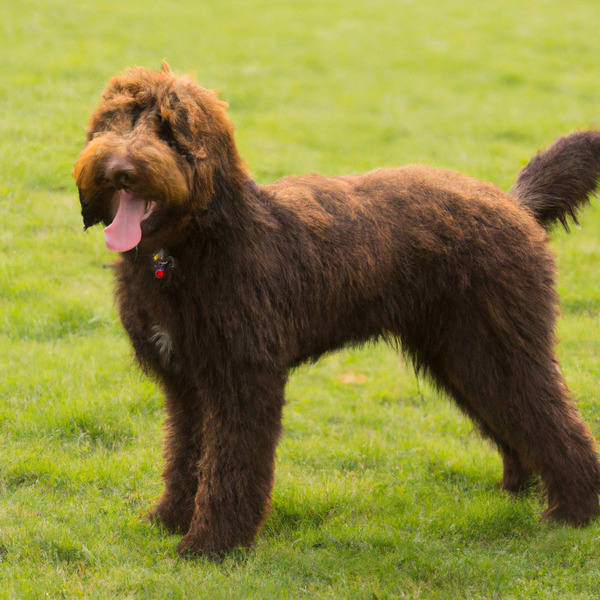
Labradoodle
Japanese Terrier vs Labradoodle
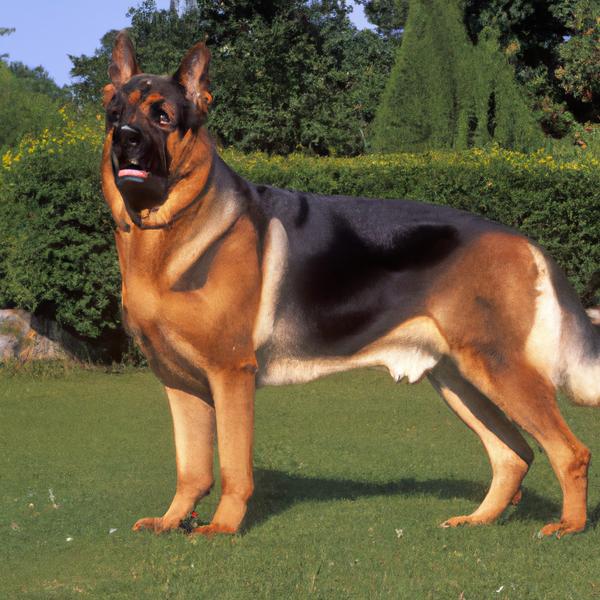
Germanees
Japanese Terrier vs Germanees
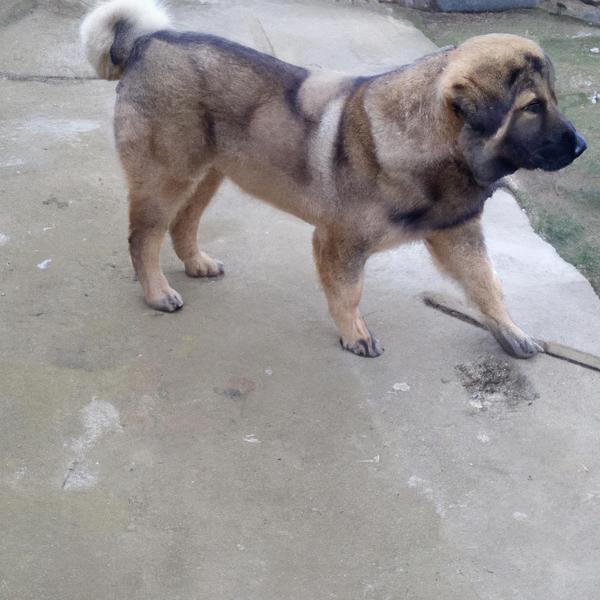
Pughasa
Japanese Terrier vs Pughasa
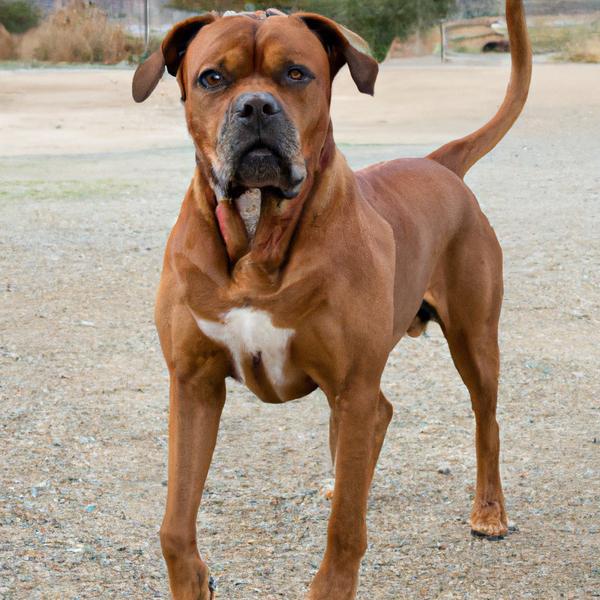
Boxador
Japanese Terrier vs Boxador
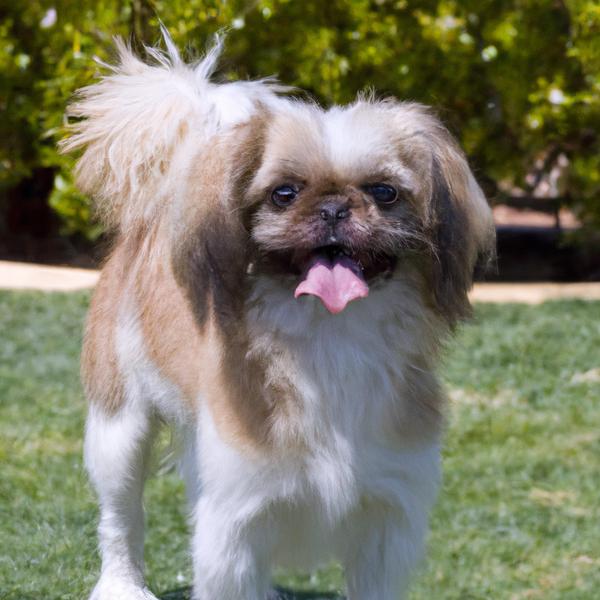
Peke-A-Chon
Japanese Terrier vs Peke-A-Chon
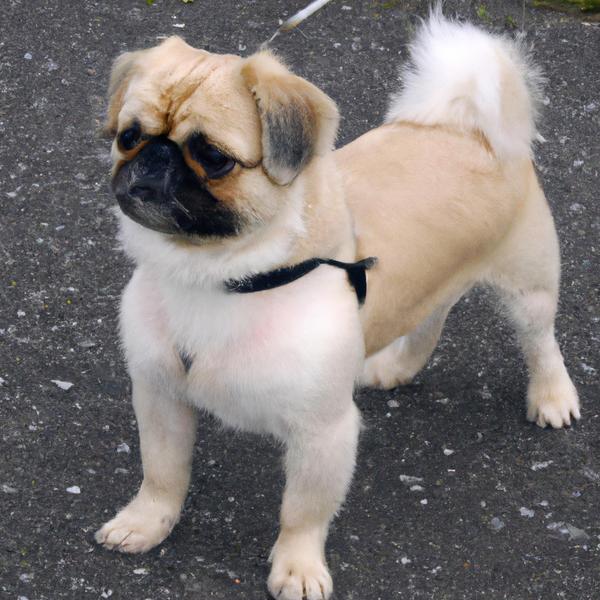
Pug-Coton
Japanese Terrier vs Pug-Coton
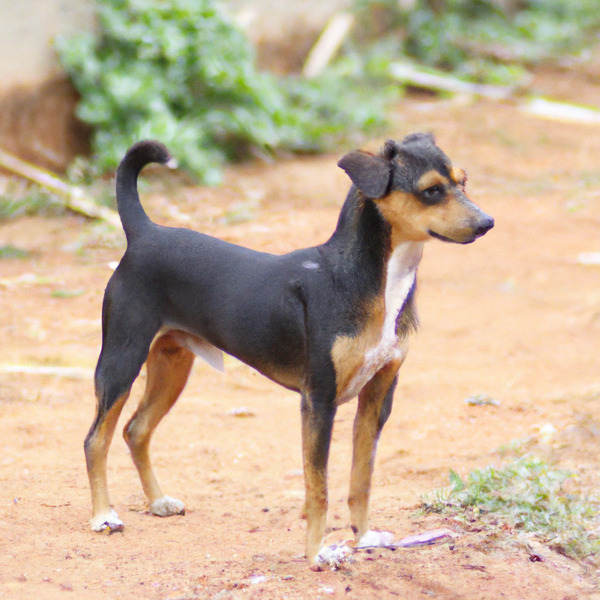
Chippiparai
Japanese Terrier vs Chippiparai
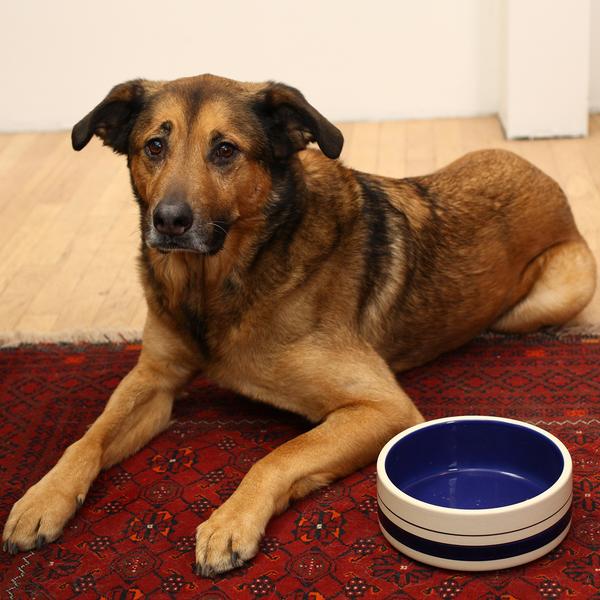
German Sheprador
Japanese Terrier vs German Sheprador
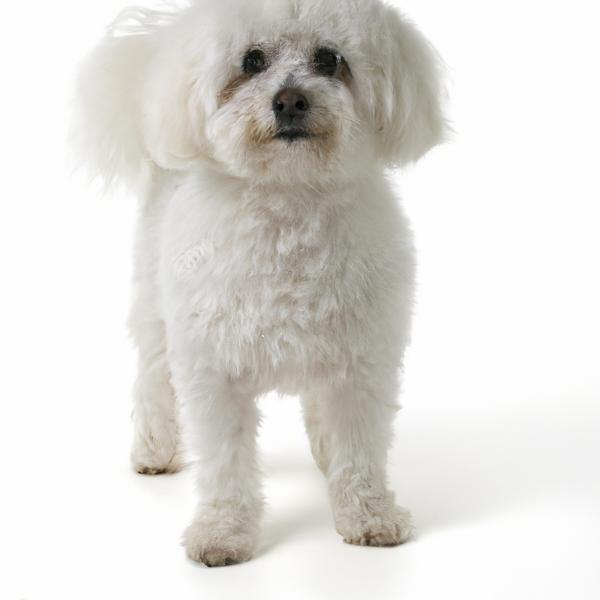
Bichon-A-Ranian
Japanese Terrier vs Bichon-A-Ranian
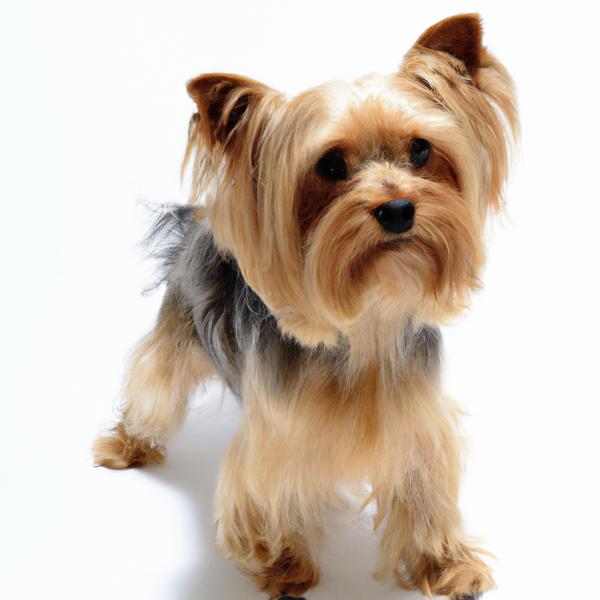
Yorktese
Japanese Terrier vs Yorktese
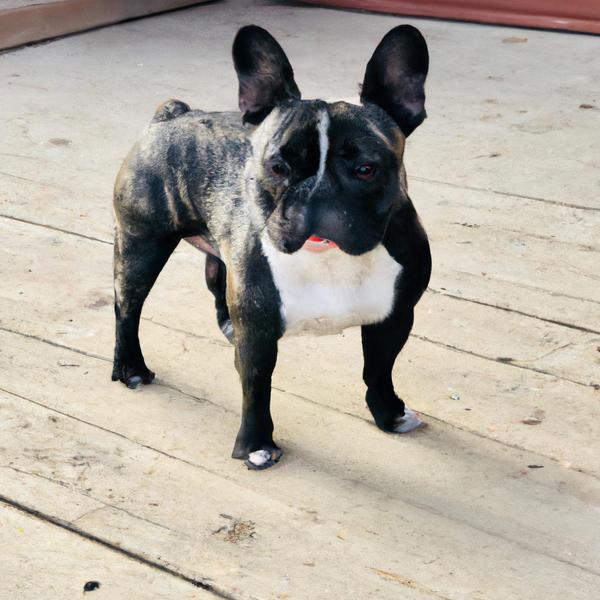
French Bulloxer
Japanese Terrier vs French Bulloxer
